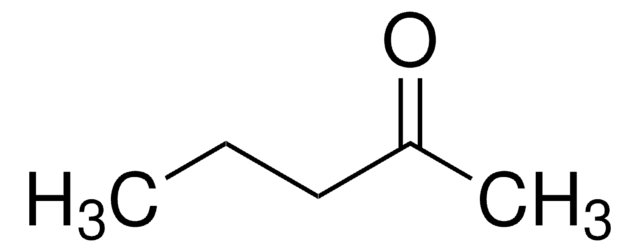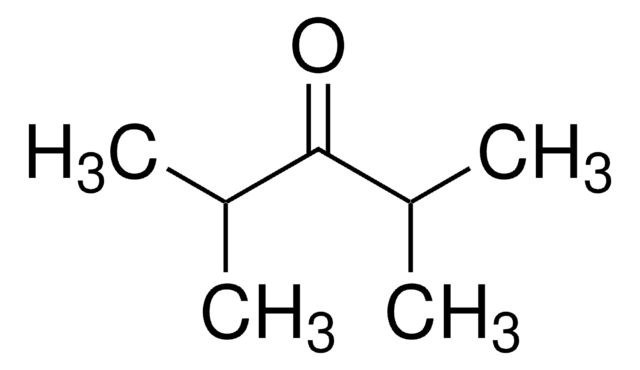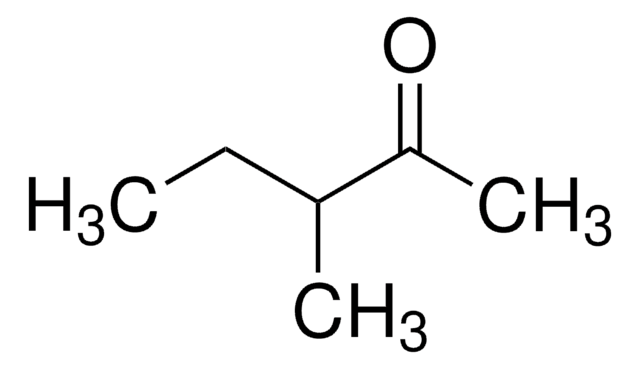101745
4-Heptanone
98%
Synonym(s):
Butyrone, Dipropyl ketone
About This Item
Recommended Products
vapor density
3.93 (vs air)
Quality Level
vapor pressure
5.2 mmHg ( 20 °C)
Assay
98%
refractive index
n20/D 1.407 (lit.)
bp
145 °C (lit.)
mp
−33 °C (lit.)
solubility
H2O: insoluble
alcohol: soluble
diethyl ether: soluble
density
0.817 g/mL at 25 °C (lit.)
functional group
ketone
SMILES string
CCCC(=O)CCC
InChI
1S/C7H14O/c1-3-5-7(8)6-4-2/h3-6H2,1-2H3
InChI key
HCFAJYNVAYBARA-UHFFFAOYSA-N
Looking for similar products? Visit Product Comparison Guide
Related Categories
General description
Application
Biochem/physiol Actions
Signal Word
Warning
Hazard Statements
Precautionary Statements
Hazard Classifications
Acute Tox. 4 Inhalation - Flam. Liq. 3
Storage Class Code
3 - Flammable liquids
WGK
WGK 2
Flash Point(F)
120.2 °F - closed cup
Flash Point(C)
49 °C - closed cup
Personal Protective Equipment
Choose from one of the most recent versions:
Already Own This Product?
Find documentation for the products that you have recently purchased in the Document Library.
Customers Also Viewed
Protocols
-Cymene; 2,5-Dimethylpyrrole; Acetoin, ≥96%, FCC, FG; 2,5-Dimethylpyrazine; 2,6-Dimethylpyrazine; 2-Ethylpyrazine, ≥98%, FG; 2,3-Dimethylpyrazine; 4-Heptanone; 3-Ethylpyridine; 2,3,5-Trimethylpyrazine; Furfural; Pyrrole; Furfuryl acetate; Linalool; Linalyl acetate; 5-Methylfurfural; γ-Butyrolactone; 2-Acetyl-1-methylpyrrole; Furfuryl alcohol; 2-Acetylpyrrole; Pyrrole-2-carboxaldehyde
Our team of scientists has experience in all areas of research including Life Science, Material Science, Chemical Synthesis, Chromatography, Analytical and many others.
Contact Technical Service
















